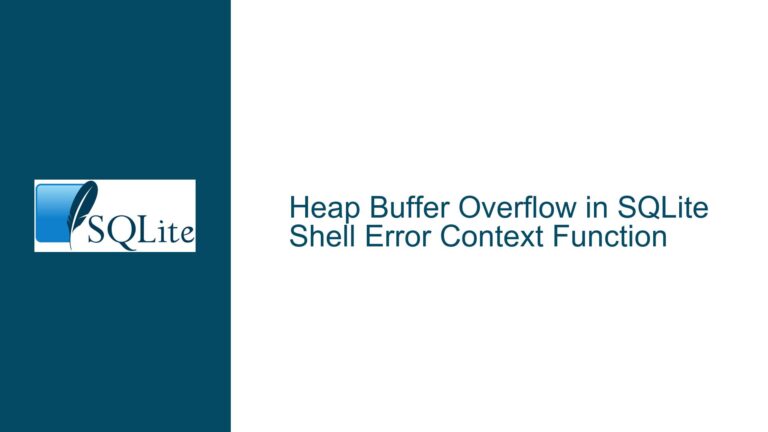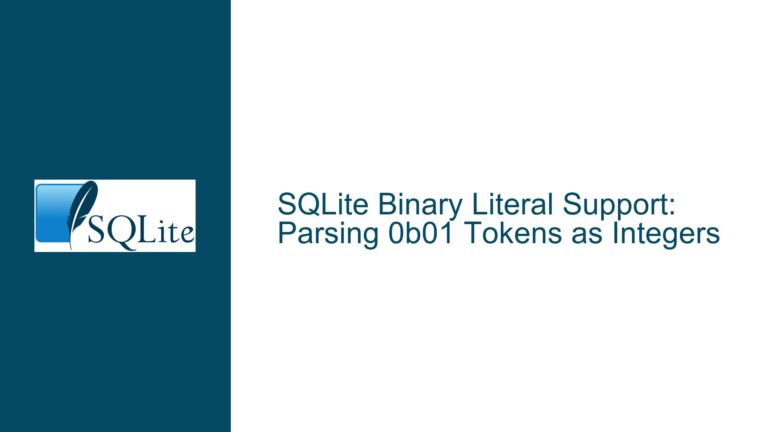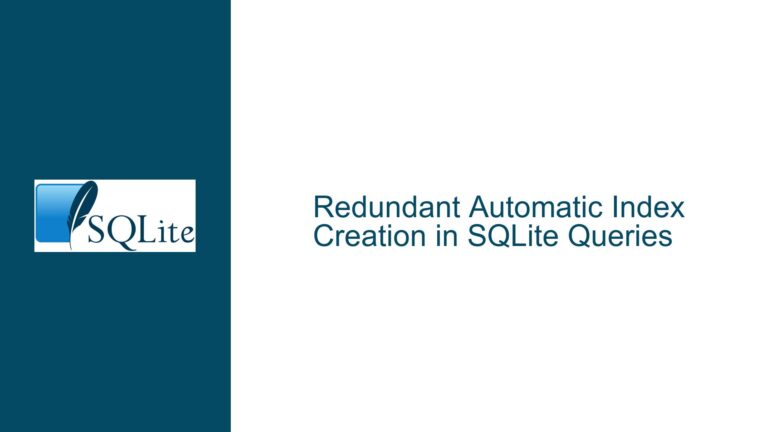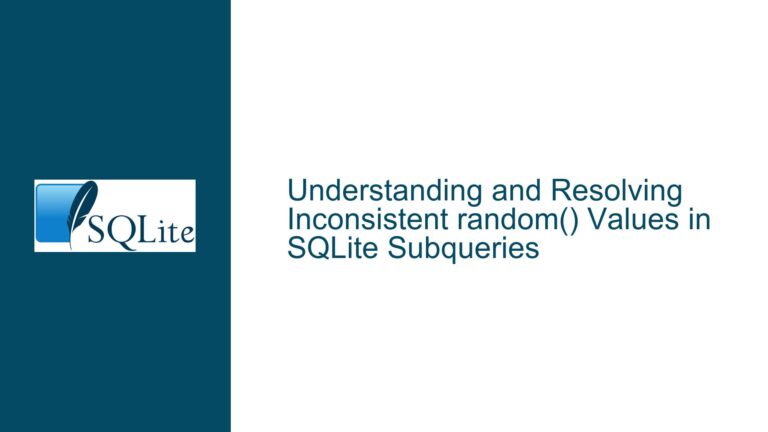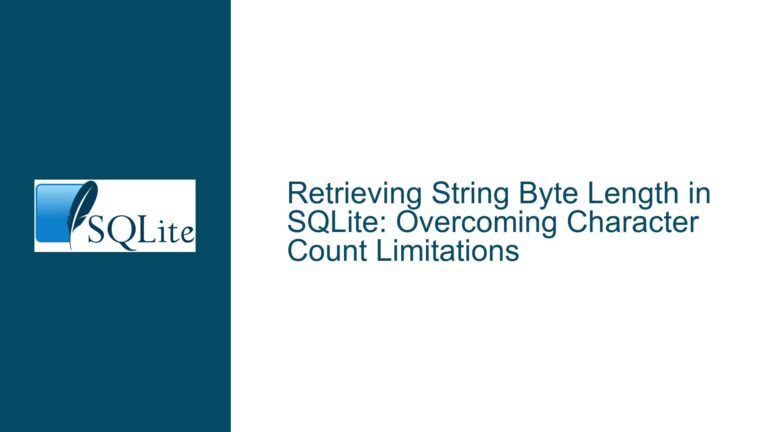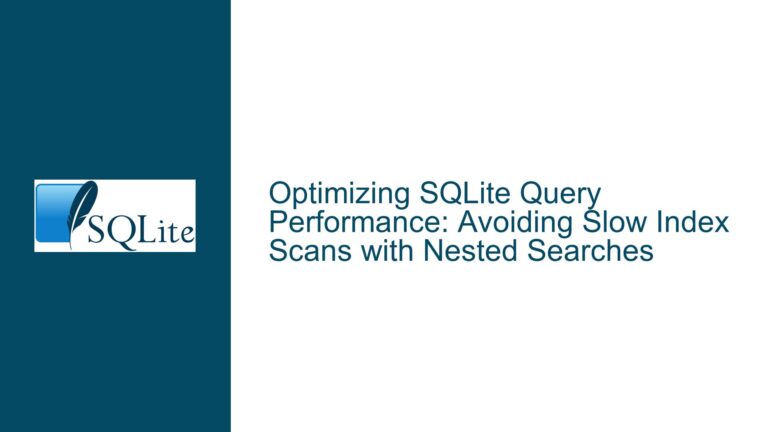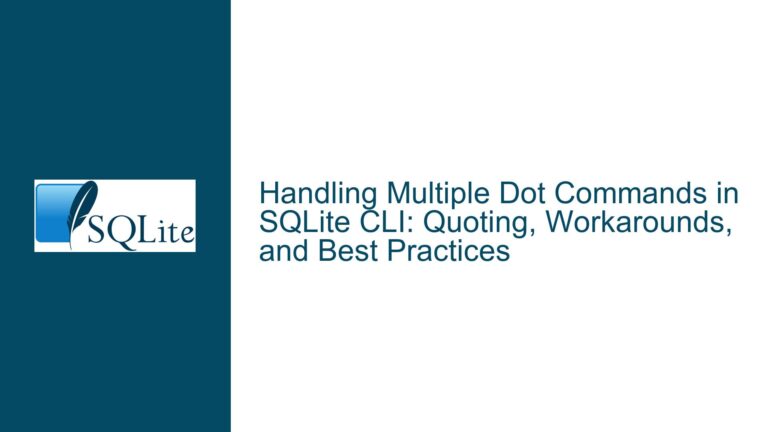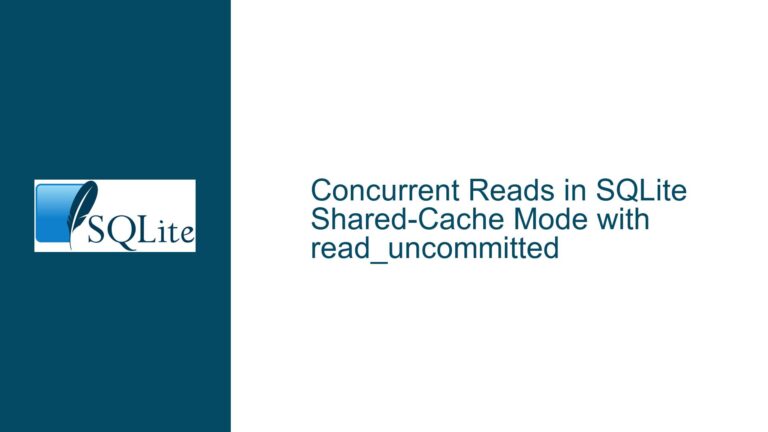Heap Buffer Overflow in SQLite Shell Error Context Function
Heap Buffer Overflow in shell_error_context Function Issue Overview The core issue revolves around a heap buffer overflow occurring in the shell_error_context function within the SQLite shell. This overflow is triggered when executing a proof-of-concept (PoC) file that was generated through fuzzing. The PoC contains special characters, making it non-human-readable, and it has been uploaded to…
